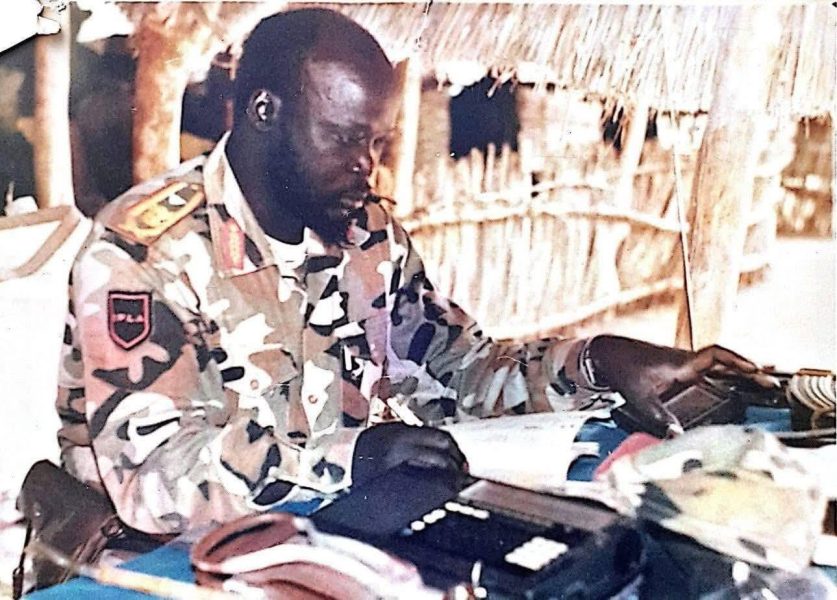
Ugandan authorities have intercepted personal documents belonging to the late South Sudanese leader Dr. John Garang de Mabior at Entebbe International Airport, raising questions about attempts to smuggle sensitive historical materials out of the country.
According to Uganda Police spokesperson Patrick Onyango, two German nationals and one Ugandan were stopped after attempting to leave Uganda with the documents.
The authorities have confirmed that investigations are ongoing.
“The individuals were intercepted while trying to smuggle personal items belonging to Dr. John Garang,” Onyango said. “The documents are now in the custody of relevant authorities for further verification and investigation.”
Dr. John Garang, who led the Sudan People’s Liberation Army/Movement (SPLA/M) and played a pivotal role in ending decades of civil war in Sudan, passed away in a helicopter crash in 2005.
His personal papers, including correspondence, political notes, and other historical records, are considered highly valuable for both historical and academic research.
Ugandan media, including the Daily Monitor, reported that the seizure comes amid heightened scrutiny over the handling and protection of sensitive historical documents at the country’s international entry points.
Security experts say such materials could be exploited for commercial, political, or research purposes if improperly accessed.
Historians note that Garang’s documents are of immense importance to South Sudan’s political history, particularly regarding the peace negotiations that led to the Comprehensive Peace Agreement (CPA) in 2005, which eventually paved the way for South Sudan’s independence in 2011.
Authorities have urged the public to refrain from trafficking historical documents and emphasized that those caught attempting to do so could face serious legal consequences under Uganda’s laws on smuggling and protection of sensitive materials.
Investigators are currently interviewing the three nationals, and the documents remain in government custody as the probe continues.
Officials have not yet disclosed whether the documents will be returned to South Sudan or retained in Uganda for safekeeping.
This incident has reignited discussions about the need for regional cooperation in protecting historical archives, especially materials belonging to prominent figures whose legacies shape contemporary political landscapes.

